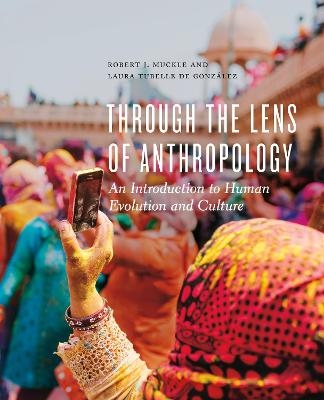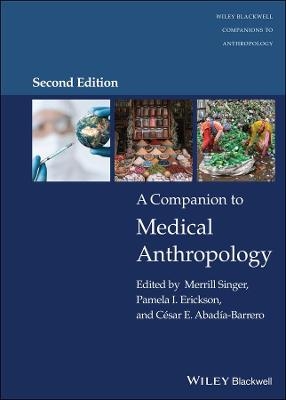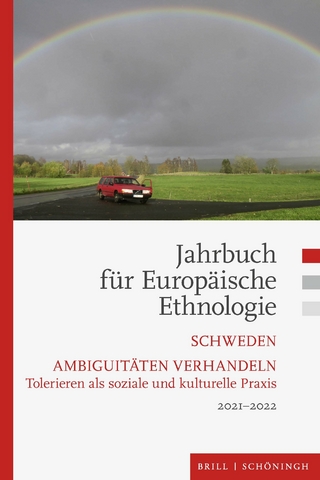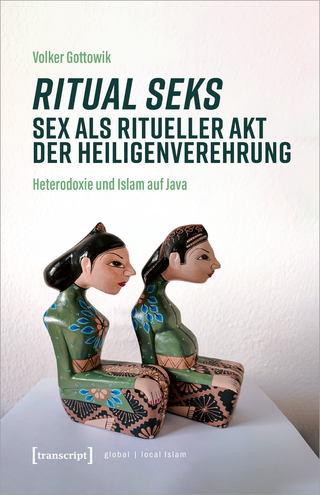
Through the Lens of Anthropology
University of Toronto Press (Verlag)
978-1-4426-0863-4 (ISBN)
- Titel erscheint in neuer Auflage
- Artikel merken
Robert J. Muckle is Professor of Anthropology at Capilano University in North Vancouver, Canada. He is the author of several textbooks, includingIntroducing Archaeology (second edition, 2014) and Indigenous Peoples of North America (2012); writes an online monthly column for Anthropology News; and is actively engaged on Twitter (@bobmuckle) in anthropology and archaeology related discussions. Laura Tubelle de Gonz lez is Professor of Anthropology and the faculty Environmental Sustainability Coordinator at San Diego Miramar College in Southern California, United States. She has won several teaching awards and is a past president of the Society for Anthropology in Community Colleges, a section of the American Anthropological Association that focuses on teaching anthropology.
List of Illustrations List of Boxes Acknowledgments About the Authors Preface Note to Instructors Note to Students 1. Introduction: Viewing the World through the Lens of Anthropology Learning Objectives Introduction Defining Anthropology, Defining Human, and Defining Culture The Four Fields and Applied Anthropology The Anthropological Perspective History of Anthropology, Mostly in North America Situating Anthropology The Importance of Anthropology in an Increasingly Connected World Summary Review Questions Discussion Questions 2. We Are Primates: The Primate Background Learning Objectives Introduction Primate Taxonomy Primate Evolution Primate Behavior Primates in Crisis: Ecological Stability and Critical Thinking Summary Review Questions Discussion Questions 3. Evolutionary Thought and Theory Leaning Objectives Introduction The Nature of Science History of Evolutionary Thought and Theory Modern Evolutionary Theory Summary Review Questions Discussion Questions 4. Human Biological Evolution Learning Objectives Introduction Palaeoanthropology-Methods, Concepts, and Issues Defining Hominins Becoming Bipedal The First Hominins The Genus Homo Summary of Trends in Human Biological Evolution The Concept of Race Summary Review Questions Discussion Questions 5. Human Cultural Evolution from 2.5 Million to 20,000 Years Ago Learning Objectives Introduction The Archaeological Record The Problems of Archaeological Visibility and Bias Overview of Cultural Evolution to 20,000 Years Ago Expanding Territories Summary Review Questions Discussion Questions 6. Cultural Evolution from 20,000 to 5,000 Years Ago Learning Objectives Introduction Principal Cultural Periods Archaeology of North America from 20,000 to 5,000 Years Ago The Transition to Food Production Settlement and Technology Changes in Social and Political Systems Civilizations, Writing, and Art Summary Review Questions Discussion Questions 7. Archaeology of the Last 5,000 Years Learning Objectives Introduction Ancient Civilizations Population Estimates, Continued Colonization, and Maintaining Diversity The Last 5,000 Years in North America Archaeology of Recent Times, Excluding Civilizations World Heritage Archaeology of the Contemporary World Pseudoarchaeology Summary Review Questions Discussion Questions 8. Studying Culture Learning Objectives Introduction The Culture Concept Ethnocentrism and Cultural Relativism Cultural Adaptation and Maladaptation The Functions of Culture Personality Development Fieldwork Methods and Ethics Digital Ethnography Applied Anthropology Summary Review Questions Discussion Questions 9. Language and Culture Learning Objectives Introduction Language and Communication: Signs and Symbols Language Origins Studying Language through the Lens of Anthropology Nonverbal Communication Ethnolinguistics Language in the Digital Age Language Change and Loss Summary Review Questions Discussion Questions 10. Food-Getting and Economics Learning Objectives Introduction Adaptive Strategies: Food Foragers and Food Producers Food Foragers Economic Resources: Who Gets What and How? Food Producers The Human Diet Summary Review Questions Discussion Questions 11. Marriage, Family, and Gender Learning Objectives Introduction Marriage Spouses: How Many and Who Is Eligible? Family Residence Patterns Marriage as Economic Exchange Kinship Descent Patterns Gender Roles: Patterned by Culture Summary Review Questions Discussion Questions 12. Politics: Keeping Order Learning Objectives Introduction Use of Power Social Controls and Conflict Resolution Types of Political Organization Social Inequality Ethnic Politics Violence and War Summary Review Questions Discussion Questions 13. Supernaturalism Learning Objectives Introduction Studying Belief Systems Sacred Roles Religious Practitioners Religious Resistance Supernatural Beliefs and Cultural Expression Summary Review Questions Discussion Questions 14. Anthropology and Sustainability Learning Objectives Introduction History of Human-Environmental Issues Defining Sustainability Anthropological Approaches to Sustainability Studies Issues in Sustainability Studies How Can Anthropologists Help? Summary Review Questions Discussion Questions Glossary References Index
| Erscheinungsdatum | 31.01.2016 |
|---|---|
| Verlagsort | Toronto |
| Sprache | englisch |
| Maße | 210 x 255 mm |
| Gewicht | 1140 g |
| Themenwelt | Geisteswissenschaften ► Archäologie |
| Sozialwissenschaften ► Ethnologie ► Völkerkunde (Naturvölker) | |
| Sozialwissenschaften ► Soziologie | |
| ISBN-10 | 1-4426-0863-3 / 1442608633 |
| ISBN-13 | 978-1-4426-0863-4 / 9781442608634 |
| Zustand | Neuware |
| Haben Sie eine Frage zum Produkt? |
aus dem Bereich



